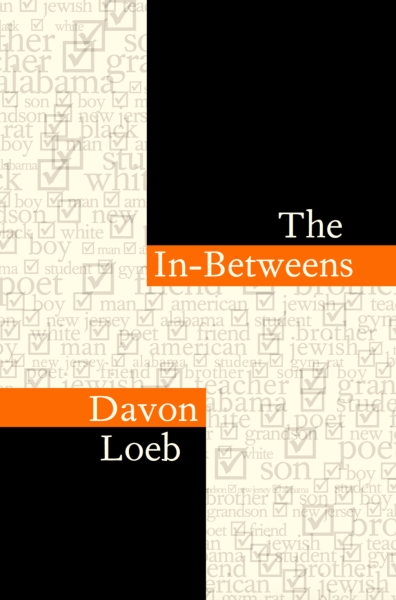INTERVIEW: Davon Loeb, Author of The In-BetweensPosted in Articles, Autobiography, Interviews, Media Archive, United States on 2020-09-12 22:26Z by Steven |
INTERVIEW: Davon Loeb, Author of The In-Betweens
Hippocampus Magazine: Memorable Creative Nonfiction
2020-07-07
Interview by Amy Eaton
The Book: Beginning with the challenges of how his White father and Black mother met, with their desire “to run away and start fresh and new”—resulting in a sometimes “pretend family”—to a near-archetypal description of his grandfather having just cut the grass as the author watches with a swollen lip and a black eye, to incessant moments in which different expressions of masculinity get inculcated, Davon Loeb frequently captures the disturbing poesy of life growing up. With painstaking detail, this work is in the vein of James McBride’s ‘The Color of Water’, Justin Torres’s ‘We the Animals’, and Jamaica Kincaid’s ‘Annie John’, ‘The In-Betweens’ is a meditation on bruise and healing. Loeb’s struggles become snapshots of how transformation occurs even where shards have been piled, where one waits “for something to happen, like flashes of red and blue sirens pulsing.” A truly extraordinary new voice! ~ Roy G. Guzmán, author of Restored Mural for Orlando
The author: Davon Loeb is the author of the lyrical memoir The In-Betweens, out now with Everytime Press. He earned an MFA in creative writing from Rutgers-Camden, and he is a poetry editor at Bending Genres. Davon writes creative nonfiction and poetry. His work has been nominated for two Pushcart Prizes and one Best of the Net, and is forthcoming and featured in PANK Magazine, Barren Magazine, XRAY Magazine, Apiary Magazine, Split Lip Magazine, Tahoma Literary Review, and elsewhere. Besides writing, Davon is a high school English teacher, husband, and father in New Jersey. Follow him on Twitter…
…AE: Your mother is such a powerful figure in the book. You’ve got your father, who you don’t see for the first time until you’re seven? And then you start seeing him sort of consistently? It feels that your stepfather is the man you feel closest to, the man that you look up to, that you’re aspiring to be, but the women in your book: your mother, your grandmother are just solid rocks in there.
DL: That was intentional. In the chapter, But I’m Not Toby, I emphasize my mother trying to teach me about Black history and what it means to be a young Black man. She’s the strong maternal voice that I think is special in a lot of Black communities. For me, that was special—especially with the uncertainty of my fathers. I wanted to make her really the most consistent character throughout the book, and I do believe I succeeded at that…
Read the entire interview here.

